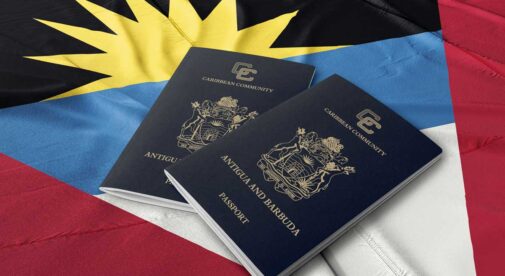Big news on the second passport front this month: it seems likely that the countries offering citizenship by investment (CBI) in the Caribbean region are about to lose visa-free access to much of Europe.
Since the early 1980s, various Caribbean island nations have offered citizenship and a second passport in exchange for an approved investment. Those range from purchase of residential property to a cash contribution to the country’s coffers. Qualifying investment amounts have been as little as $100,000.
Are you interested in retiring abroad? Yes | Not Sure Yet
The driving force behind these programs has always been the limited economic potential of island economies. For nearly 500 years, the islands specialized in sugar cane and other plantation crops. The Caribbean nations achieved independence just as these commodities were declining in economic importance.
Some nations, such as Antigua and Barbuda, have achieved success as tourist destinations. Others—notably St. Kitts and Nevis—built financial sectors specializing in offshore corporate structures and asset protection trusts.
In general, however, these small island nations have struggled to generate enough government income to provide essential services to their citizens. Starting in 1984 with St. Kitts and Nevis, CBI programs became a way to plug the budget hole.
One of the big attractions of Caribbean CBI programs is that the countries offering them are all ex-colonies of Great Britain. This historical connection allowed their citizens visa-free entry to Britain and the European Union. They also enjoyed various benefits as members of the Commonwealth of Nations.
This soon proved irresistible to individuals who might be barred from entry into Europe for various reasons. Global criminals, drug traffickers, corrupt politicians, and spies have all sought to gain Caribbean passports as a back door to Europe.
Self-interest has also played a role. The CBI countries lacked the bureaucratic skills to run these programs. Into the breach stepped boutique migration consultancies. They wrote the enabling immigration legislation and regulations, solicited potential applicants, and did due diligence on them. Since their profits depended on successful applications, they had an incentive to go easy on due diligence.
After a spate of high-profile cases involving Iranian intelligence agents and corrupt Chinese businesspeople, diplomatic pressure led to improvements. But the incentive to look the other way when dodgy applicants offered “extra” fees to get approved meant the problem never really went away.
Two recent developments have increased pressure on the CBI programs.
On one hand, the COVID pandemic, strain between the U.S. and China, rising European nativism, and Russia’s invasion of Ukraine have combined to generate increasing demand for CBI from disfavored individuals. On the other hand, the growth of transnational investigative networks has made it more difficult for these individuals to avoid public scrutiny.
The result is that even though most CBI applicants are above board, the bad apples have generated increased concern.
Ten days ago, British Home Minister Suella Braverman announced the abrupt termination of visa-free access to the United Kingdom from citizens of Dominica and Vanuatu in the Pacific. She cited cases of individuals who had previously been denied UK visas gaining entry to the country on CBI passports.
Later that same week, reports surfaced that the European Union had told the Caribbean CBI countries that unless they doubled the price of their citizenship and dramatically strengthened due diligence, they would all lose visa-free access to the Schengen zone. They also demanded that CBI applicants collect their new passports in person—something most corrupt applicants can’t do on their existing passports.
In response, St. Kitts and Nevis announced it was immediately implementing these “recommendations.” A passport that could be bought for as little as $125,000 last week will now cost you $400,000. Authorities will also revisit recent applications and withdraw citizenship from anyone found to have withheld pertinent information.
There are three potential paths for the Caribbean CBI programs from here:
- All the islands follow St. Kitts and Nevis and raise their fees and increase their due diligence efforts. That will make their passports unaffordable for many potential applicants. It will also put their price point close to European golden visa offerings, making them much less attractive to honest applicants. But it may lead to restoration of visa free access.
- Some of the countries decline to reform their programs or raise their prices, leading to their exclusion from the United Kingdom and the Schengen zone. Given that the latter tend to negotiate with the CBI countries as a group, that could have spillover effects to all the islands.
- Efforts to reform the CBI programs fail to impress the Europeans, and visa-free access is not restored. That will make their passports not only expensive, but useless.
Citizenship by investment isn’t a bad thing. But the terrain is shifting. That makes it increasingly important to do your homework and get the right support when looking for a second citizenship and passport for yourself.

How to Get a Second Passport: The World’s Most Valuable Document Right Now
Learn more about the best ways to boost your income and protect your wealth in our daily e-letter Field Notes with Jeff Opdyke.
• Valuable second passport—U.S. passport not affected
• The 21 passports you could be entitled to right now (including 11 European passports)
• A useful key to unlock closed and locked down travel borders
Claim your FREE report + video to learn more
Related Articles
Is it Legal to Have a Second Passport?
Why More Americans Are Getting Second Passports
5 Best Caribbean Islands to Live On… and 2 to Avoid
Upcoming Conferences
The Only 2024 Fast Track Panama Conference
If your dream retirement involves stunning beaches… lush green mountains… a warm climate with no hurricanes… first-rate healthcare… incredible value for money (a couple can live well on $2,200 a month)… and the World’s #1 Retiree Discount Program…
Join our Panama experts and expats in February and discover why Panama could be your perfect paradise.
REGISTER NOW, SEATS LIMITED: EARLY BIRD DISCOUNT HERE



.png)